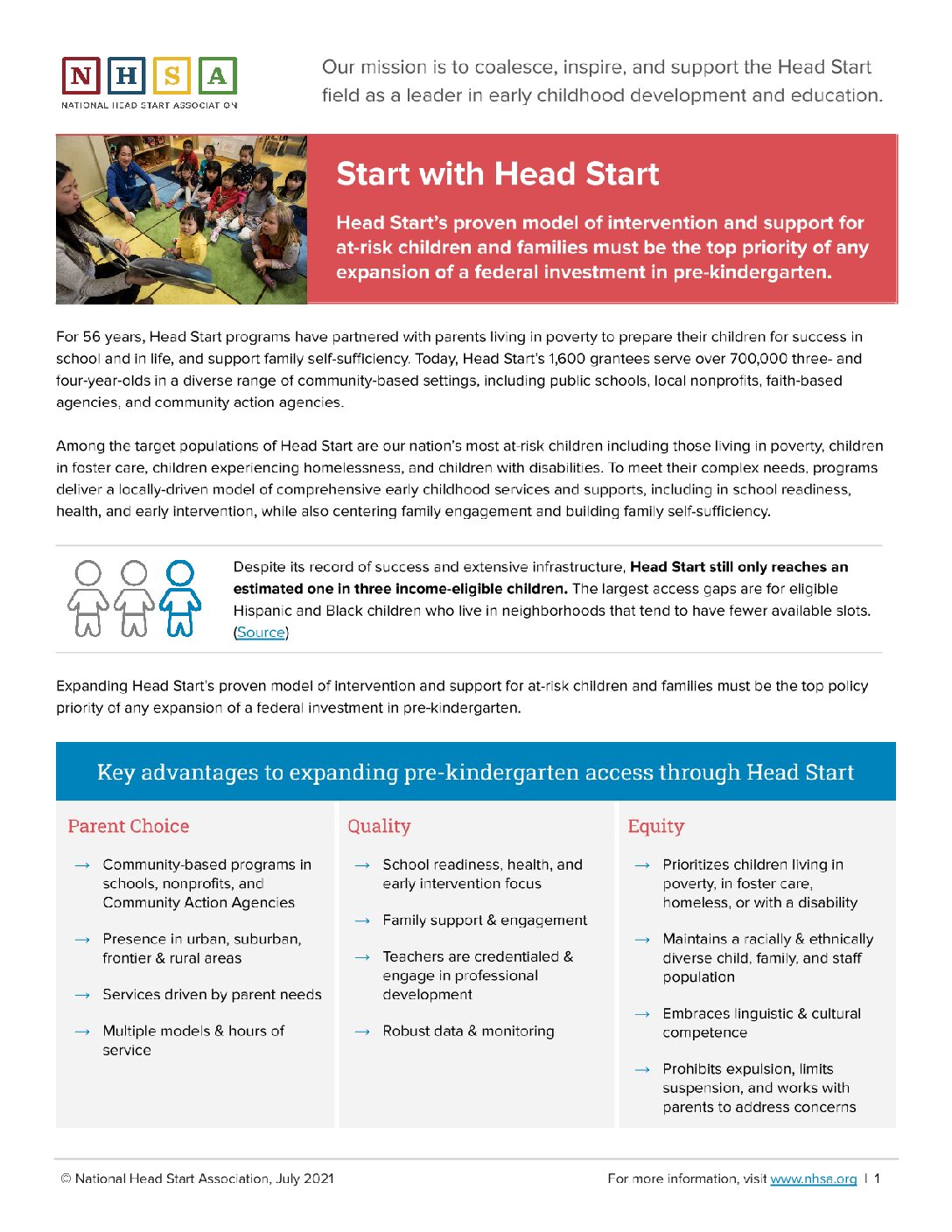Expanding Head Start’s proven model of intervention and support for at-risk children and families must be the top policy priority of any universal pre-kindergarten expansion.
For the last six decades, Head Start programs partner with parents living in poverty to prepare their children for success in school and in life, and support family self-sufficiency. Among the target populations of Head Start are children living in poverty, children in foster care, children experiencing homelessness, and children with disabilities. To meet their complex needs, programs deliver a locally-driven model of comprehensive early childhood services and supports, including in school readiness, health, and early intervention, while also centering family engagement and building family self-sufficiency.
Despite its record of success and extensive infrastructure, Head Start still only reaches an estimated one in three income-eligible children. The largest access gaps are for eligible Hispanic and Black children who live in neighborhoods that tend to have fewer available slots.

